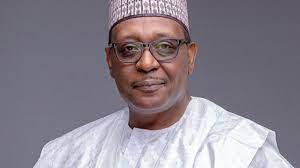Prof. Ali Pate, has called on the global community to re-examine the global health pact between developed and developing countries.
He made the call in Geneva, Switzerland in an address to the opening plenary of the 77th World Health Assembly (WHA) with the theme “All for Health, Health for All”.
He said the re-examination was intended to ask the legitimate questions of whether the global health architecture was still fit-for-purpose and whether there was political will to reform it for a future of greater uncertainties.
He added that “these are the questions that Nigeria would like members of the Assembly to ponder on in the days ahead.”
He said the COVID-19 pandemic had laid bare the vulnerabilities in health systems, both in developed and developing nations, challenging a rethink of the connection of access to health and social justice within countries and globally.
He pointed out that “as the world emerges from the pandemic, we would have thought that the sobering lessons of the pandemic reignited our determination to build political will, reinforce global solidarity, refocus on addressing global inequities and invest in the global commons.
“No country can be an island in this hyper-connected world, facing serious threats from infectious diseases, climate change, and leadership dysfunction, perpetuating devastating conflicts in too many regions in parts of Africa, in the Middle East and even in Europe.
“The gap between rhetoric and action cannot be louder at the global level. We cannot solve injustices with more injustice.”
The minister said that the world had almost completely forgotten the lessons of COVID-19 and debating the equivalence of public health and profits.
He added that yet the world was struggling to build consensus on a fair and equitable pandemic accord with a stronger technically sound World Health Organisation (WHO) coordinating the center.
“Yet here we are in this Assembly, with half the world’s population experiencing health poverty, deprivations of access to, and affordability of, basic healthcare such as immunisation, reproductive, maternal, newborn and child healthcare.
“Even the significant progress made in addressing HIV/AIDS, Tuberculosis and Malaria are looking fragile. Many health systems remain weak and developing countries like Nigeria continue to lose their highly trained health professionals to the developed countries who did not invest in their first professional education.”
Bringing it home, he said that Nigeria takes responsibility and strives to rebuild its national health system, improve its governance, strengthen its public health capacities, and unlock its healthcare value chains.
“We are increasing domestic financing, expanding primary healthcare and financial protection for the poor and vulnerable, retraining frontline health workers and increasing training quotas for new ones. We are also stimulating local production of commodities, reinforcing core public health capacities, strengthening prevention and preparedness, and controlling various disease outbreaks.
“In Nigeria, we cannot ask the global community to do what we are not willing to do ourselves”, he added.
He, however, called on international technical and financing health partners to match the nation’s commitments, align with its priorities, increase shift to use its national systems that are more sustainable and responsive to the local needs.
According to him, there is a strong Nigerian health system as integral to regional health security in Africa and to global health security.
On the theme of the assembly, he said “it resonates profoundly with Nigeria’s Health Sector Renewal Investment Initiative, whose goal is to save lives, reduce pain, and produce health for all Nigerians.”
He also said that regarding the ongoing negotiations for a Pandemic Treaty and review of the International Health Regulations, Nigeria aligns with the Common African Position and recommends continuation of negotiations until a fair agreement is reached and concluded at a Special Session before the end of the year.
The News Agency of Nigeria (NAN) reports that WHA is the decision-making body of WHO, attended by delegations from all WHO Member States and focuses on specific health agenda prepared by the Executive Board.
(NAN)







